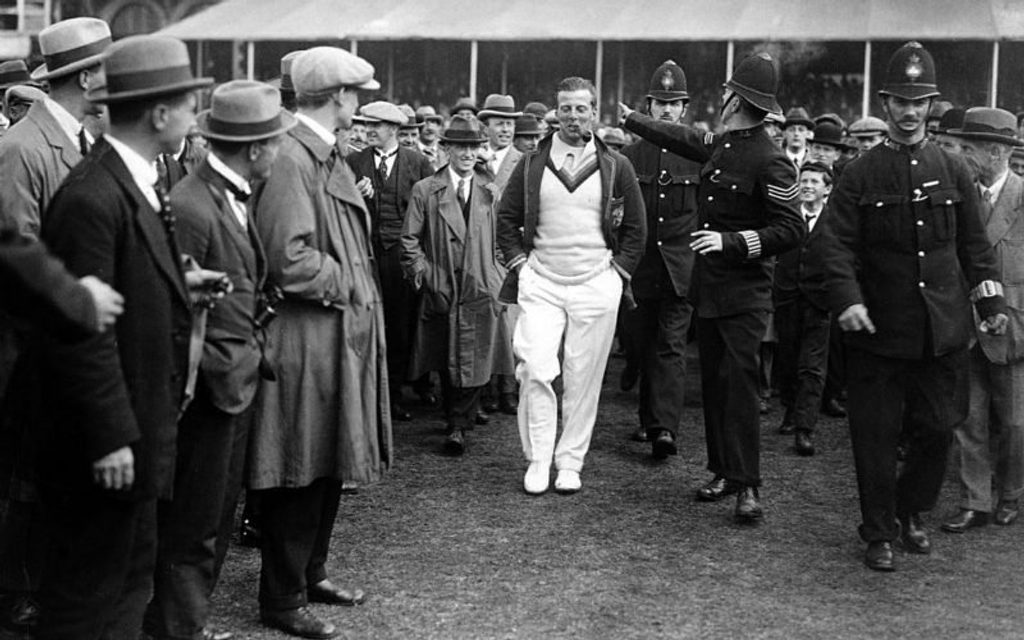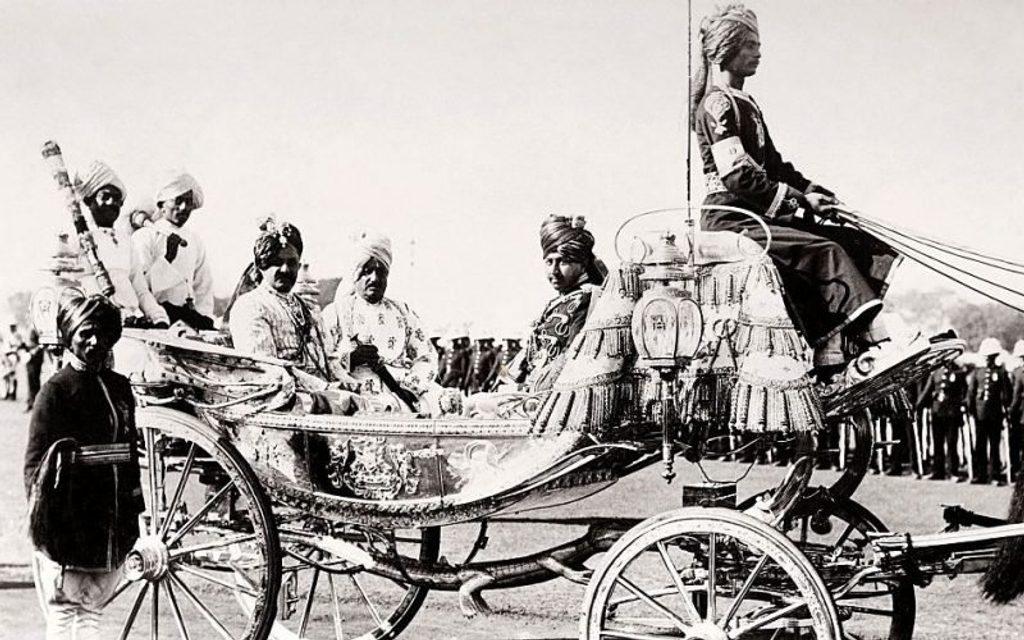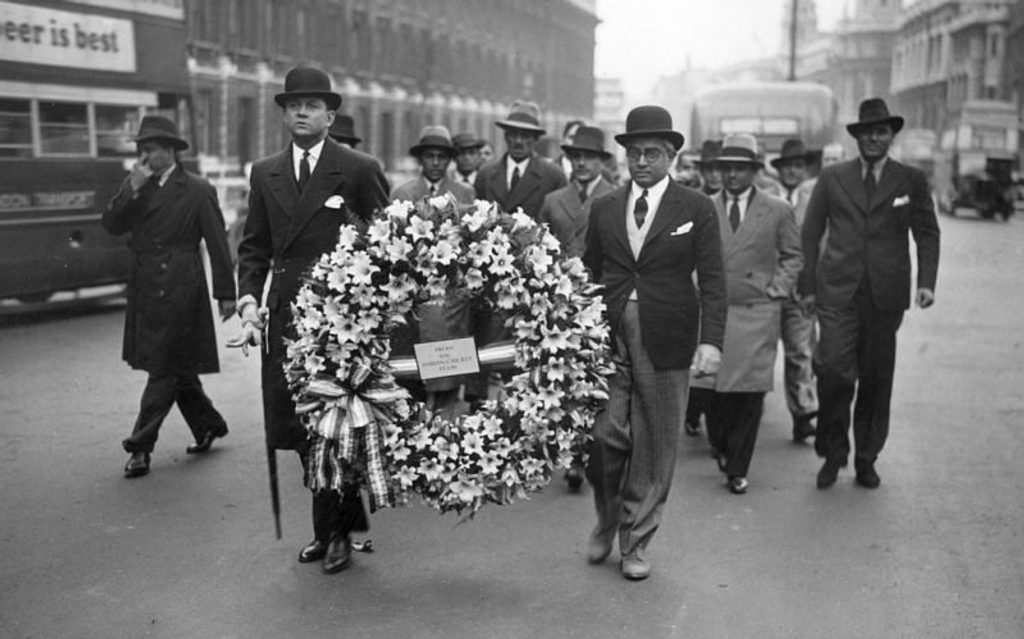
From Lord Tennyson to Maharajkumar of Vizianagram – Tanya Aldred pens down the best and worst cricketing aristocrats in issue 6 of the Wisden Cricket Monthly.
First published in issue 6 of the Wisden Cricket Monthly
THE BEST
Lord Tennyson
Tennyson, grandson of the poet, was a jowly cavalier cricketing toff. He cared not a jot for statistics preferring to make jolly whoopee with the bat. He was mentioned twice in WW1 dispatches, captained Hampshire and played nine times for England. In the summer of 1921 he was having a night on the tiles when he was told that he would be needed for the Ashes Test the following day. He bet onlookers that he would make fifty, did and was duly made captain. He was an inveterate gambler and womaniser and died penniless, but fulfilled.
[caption id=”attachment_166623″ align=”alignnone” width=”800″] England captain, the Honorable Lord Lionel Hallam Tennyson, is escorted by the policemen as he walks out to inspect the wicket at The Oval, circa 1921[/caption]
England captain, the Honorable Lord Lionel Hallam Tennyson, is escorted by the policemen as he walks out to inspect the wicket at The Oval, circa 1921[/caption]
Lord Hawke
The seventh Baron Hawke is best remembered for his cry: “Pray God, no professional shall ever captain England!” yet behind the iron moustache was a man ahead of his time. He was appointed Yorkshire captain at 22, taking on “ten drunks and a parson” and led them for 28 years. He designed the Yorkshire badge and alongside his patrician golden rules for team selection – nice manners and a good temper – sorted out win bonuses, winter pay and pensions.
Hon FS Jackson
Fine of figure, luxurious of moustache, Jackson captained Harrow, Cambridge, Yorkshire and England; then became chairman of the Conservative Party and Governor of Bengal. He embodied the maligned spirit of cricket, walked, and once gave a catch to a fielder who had dropped him the previous ball. During the 1905 Ashes, in which he starred with bat and ball, he won the toss every Test, which provoked the Australian captain to invite him to a wrestling match. Wiley Jackson proffered up the stocky George Hirst in his stead and the offer was withdrawn.
[breakout id=”0″][/breakout]
Ranji
Ranji was a batsman of great charm who invented both the late cut and the leg glance. Inheriting a disputed princehood, he spent much of his twenties at Sussex where he plundered runs and ran up huge debts. He was almost as prolific in his 15 Tests, before princely duties called him home. He was hopeless with money, showering women with unaffordable gifts. He returned to county cricket in 1920, aged 47, fat, unfit and with a glass eye. It was not a success.
[caption id=”attachment_166624″ align=”alignnone” width=”800″] The coronation of Prince Kumar Shri Ranjitsinhji or Ranji of Nawanagar, riding in his silver carriage, at the Durbar in Delhi, circa 1907[/caption]
The coronation of Prince Kumar Shri Ranjitsinhji or Ranji of Nawanagar, riding in his silver carriage, at the Durbar in Delhi, circa 1907[/caption]
THE WORST
Maharajkumar of Vizianagram
Vizzy was determined to lead despite zero cricketing ability. He wheedled himself, with the help of his immense wealth, into the captaincy role on India’s 1936 tour of England and proved a disaster. He quarrelled with his teammates, sent his best player home and in the three Tests averaged 8.25 and did not bowl. He was rumoured to have handed out gold watches to any bowler prepared to chuck up a few full tosses. He was sacked shortly afterwards but re-emerged as an administrator, politician and terrible radio broadcaster.
[caption id=”attachment_166626″ align=”alignnone” width=”800″] India captain Vizianagram (right), with other members carrying a wreath to the Cenotaph, London, circa April 1936[/caption]
India captain Vizianagram (right), with other members carrying a wreath to the Cenotaph, London, circa April 1936[/caption]
The Honourable Freddie Calthorpe
Calthorpe led England’s first team to tour West Indies. He is most famous for the world’s worst non-enforcement of the follow-on after England had scored 849 and then bowled West Indies out for 286, a decision EW Swanton described as “extraordinary”. The match was abandoned after the eighth day because England had to board the boat home and Freddie never played another Test.
Sir Pelham Warner
The son of Trinidad’s attorney general, Plum occupied almost every important position in cricket. He played for Oxford, Middlesex England, was chairman of selectors, president of MCC, founded The Cricketer magazine, and managed the Bodyline tour where he famously turned a blind eye. At the end of the third Test he was reduced to tears by Bill Woodfull, “There are two teams out there; one is playing cricket, the other is not,” but nevertheless kept as much as possible from Lord’s. On his return, he blackballed Larwood and was knighted.
Sourav Ganguly
That celebration 😍
There’ll never be another Dada.#HappyBirthdayDadapic.twitter.com/1UvJJfhuSU
— Wisden India (@WisdenIndia) July 8, 2020
Not an aristocrat as such but (un)affectionately known as Lord Snooty in his playing days, Ganguly’s father was one of the richest men in Calcutta. Young Sourav was somewhat lacking in humility and his school teammates complained when he refused to carry out 12th-man duties. This attitude continued during his first ODI when he refused to carry the drinks and was promptly dropped, though not for long – he became one of India’s best captains.







